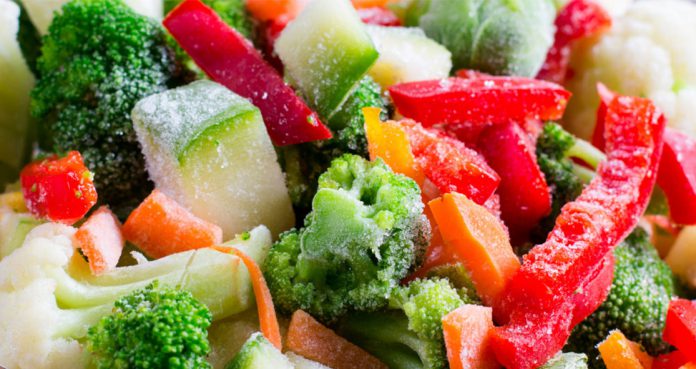We already know that veggies are a rich source of dietary fiber, vitamins, minerals, and antioxidants that help boost our performance and recovery, so we do not hesitate to load up our cart with fresh veggies. However, when we spot the freezer aisle, we often wonder – are frozen vegetables good for health?
This could be a tricky question, especially when we buy a bunch of green veggies for eating more salad; however, three days later, we are forced to cast aside the wilted leaves.
Lindsey Pfau, the owner of Rise Up Nutrition, says, “Vegetables are often harvested and then immediately frozen, which helps them retain their nutrition profile. Most companies freeze their vegetables within hours and their nutrition wouldn’t really suffer even if they’re not frozen for a few days.”
We all are busy with hectic schedules that can make things a bit difficult, especially when it comes to preparing and cooking fresh vegetables. So, getting frozen veggies is easy. All we need to do is thaw, cook and add some protein and wholegrain.
“Not to mention, in general, frozen vegetables are cheaper than fresh, so if you’re on a budget, frozen is a good option,” says Pfau.
She explains boiling can run the risk of eliminating the essential nutrients from vegetables, irrespective of fresh or frozen.
She says, “Water-soluble nutrients—B vitamins, including folate, and vitamin C—are the ones most affected by boiling. You could lose up to 75 percent of these vitamins cooking them that way. Steaming is a slightly better option, but you still could lose a chunk of those water-soluble nutrients due to the amount of water needed to steam.”
Instead, she recommends sautéing frozen or fresh veggies with olive oil, or blanching, roasting, or baking them.
Pfau further explains that one of the drawbacks of frozen is falling into the trap of prepackaged sauces. She says, “I recommend getting just the frozen vegetable or a blend of vegetables, and avoiding flavorings.”
Packaged sauces and seasoning are often high in salt and sugar. Instead, she advises flavoring your vegetables yourself by adding spices and herbs such as chili pepper, cumin, salt, and pepper.
She concludes that frozen vegetables can be an excellent option for those who are short on time and on a budget, and who just prefer the convenience. Generally, the freezing process does not disturb vegetables’ nutrient content, as long as you take care of the cooking method. Pfau notes, “Some people think eating raw veggies is best and just by the nature of using frozen produce, you are not going to eat raw. But balance and variety are good.” “Yes, you might lose some water-soluble vitamins and antioxidants in heating, but some antioxidants and enzymes are activated and enhanced through cooking.”























